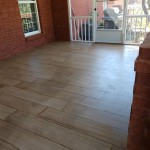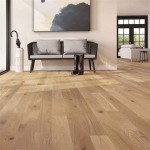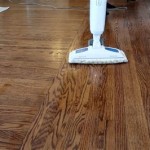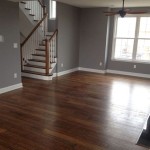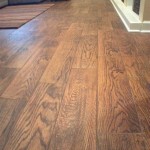Best Adhesive for Wood Flooring to Concrete
Installing wood flooring over a concrete subfloor requires a strong, reliable adhesive to ensure stability and longevity. Choosing the right adhesive is crucial for a successful installation and will prevent issues like buckling, warping, or squeaking down the line. This article explores the best adhesive options for wood flooring to concrete, considering factors like moisture levels, wood type, and installation method.
Urethane Adhesives
Urethane adhesives are a popular choice for bonding wood flooring to concrete due to their exceptional strength and moisture resistance. They are formulated to handle the expansion and contraction of wood caused by temperature and humidity fluctuations. Urethane adhesives are available in both one-component and two-component varieties. One-component versions are moisture-cured, meaning they react with moisture in the air and concrete to cure. Two-component versions require mixing a resin and a hardener, offering faster curing times and greater control over the bonding process. Urethane adhesives are versatile and suitable for various wood flooring types, including solid hardwood, engineered wood, and parquet.
Modified Silane Adhesives (MSAs)
Modified silane adhesives (MSAs) offer a hybrid approach, combining the benefits of polyurethane and silicone technologies. They provide excellent adhesion to both wood and concrete, along with superior elasticity and moisture resistance. MSAs are generally one-component, simplifying the application process. They offer a strong initial tack, which is helpful for positioning flooring planks, and have lower VOC emissions compared to some urethane adhesives. MSAs are suitable for various wood flooring types and are particularly well-suited for engineered wood and bamboo flooring.
Epoxy Adhesives
Epoxy adhesives are known for their exceptional strength and durability. They create a rigid bond between the wood flooring and concrete, providing excellent stability. Epoxy adhesives are highly resistant to moisture, chemicals, and temperature fluctuations. They are typically two-component systems, requiring precise mixing ratios for optimal performance. While exceptionally strong, epoxy adhesives can be more challenging to work with due to their shorter working times and the need for meticulous substrate preparation. They are best suited for installations where extreme durability and moisture resistance are paramount. Epoxy adhesives can be used with various wood flooring types but are often chosen for solid hardwood and exotic wood species.
Factors Influencing Adhesive Choice
Several factors influence the selection of the best adhesive for a specific project:
Moisture Levels: Concrete subfloors can retain moisture, which can negatively impact wood flooring. It's essential to test the moisture content of the concrete before installation. If moisture levels are high, choosing a moisture-resistant adhesive like urethane or MSAs is crucial. For excessively damp concrete, a vapor barrier may be necessary before adhesive application.
Wood Flooring Type: The type of wood flooring also plays a role in adhesive selection. Solid hardwood is more susceptible to moisture damage than engineered wood. For solid hardwood, a highly moisture-resistant adhesive is recommended. Engineered wood, with its layered construction, offers greater dimensional stability and can be installed with a wider range of adhesives.
Installation Method: Different installation methods may require specific adhesive properties. For example, floating installations do not require adhesive, while glue-down installations do. Some adhesives are designed for specific installation methods, such as click-lock or tongue-and-groove.
Subfloor Condition: The condition of the concrete subfloor also affects adhesive choice. The subfloor should be clean, level, and free of cracks or debris. For uneven subfloors, a self-leveling compound may be required before adhesive application.
Working with Wood Flooring Adhesives
Regardless of the chosen adhesive, proper application techniques are essential for a successful installation. Follow the manufacturer's instructions carefully, including recommended trowel size and open time. Ensure adequate ventilation during the application and curing process, as some adhesives emit volatile organic compounds (VOCs). Proper substrate preparation, including cleaning and priming, is crucial for optimal adhesion. Using the correct trowel size ensures even adhesive distribution and prevents voids that could lead to squeaking or buckling.
Selecting the right adhesive for wood flooring to concrete is a crucial step in ensuring a durable and long-lasting installation. Consider the factors discussed above and consult with a flooring professional to determine the best adhesive for your specific project needs.

How To Install A Glue Down Floor Diy Flooring

What Is Flexible Flooring Adhesive Ambience Hardwood

How To Install Tongue Groove Hardwood Floors Over Concrete

The Right Wood Floor Adhesive For Job Trends Installation

The Science Behind Wood Floor Adhesives

Bostik S Best Wood Flooring Urethane Adhesive Us

Gluing Hardwood Floors Your Comprehensive Installation Guide

Glue Wood Flooring To A Concrete Slab Fine Homebuilding

Glue Wood Flooring To A Concrete Slab Fine Homebuilding

Fitting Hardwood Floor To Concrete Wood And Beyond Blog

